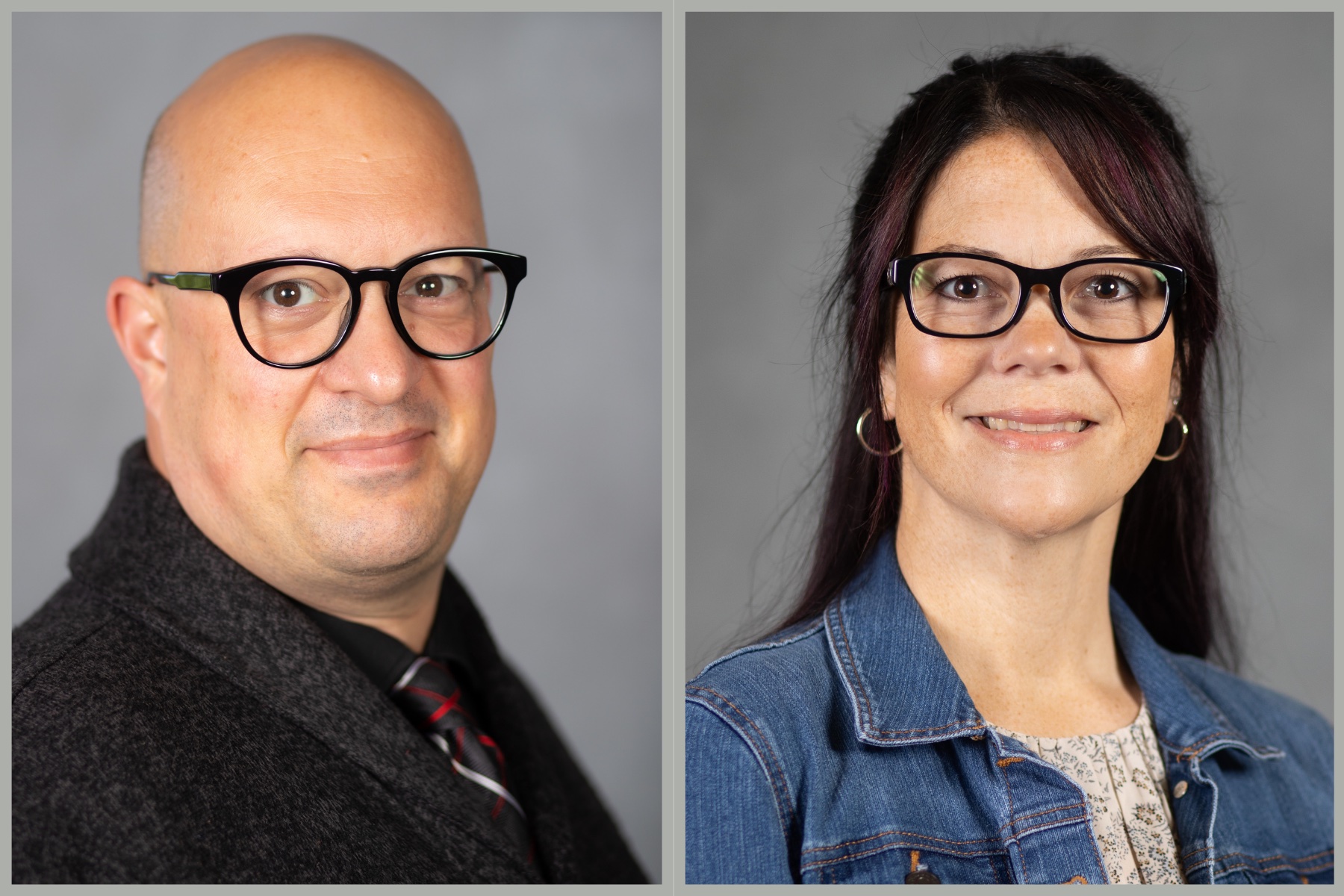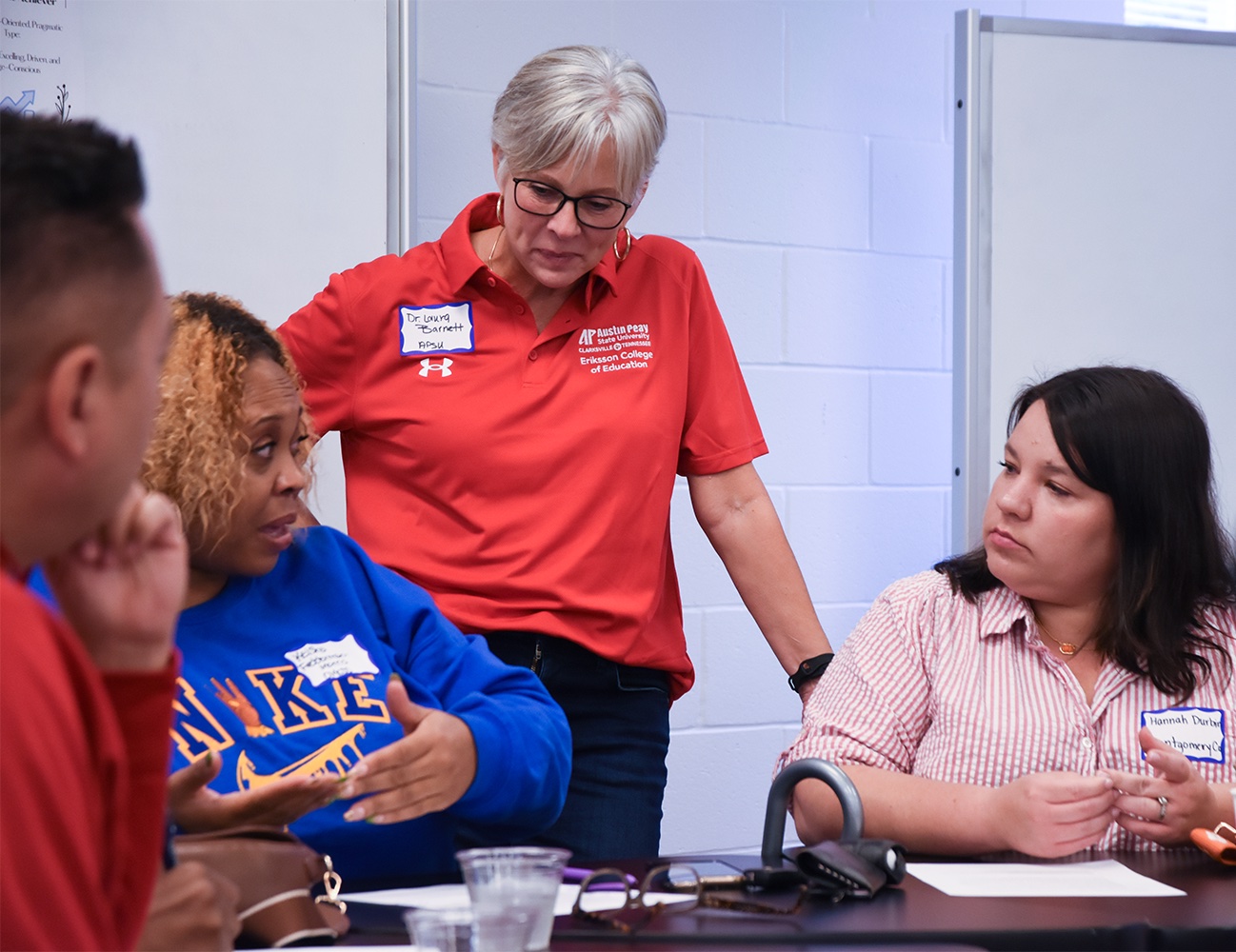APSU’s Eriksson College of Education earns reaccreditation, glowing reviews

CLARKSVILLE, Tenn. – The timing is what made everyone a little nervous. Last year, the Austin Peay State University Eriksson College of Education was scheduled to renew its national accreditation. That process is stressful enough without also having to deal with a global COVID-19 pandemic.
To ease his colleague’s worries, Dr. Prentice Chandler, dean of the college, offered a few simple words of encouragement.
“Let’s do the work with calm and without chaos,” he said. “We can do this and do a great job.”
How did the college’s reaccreditation team do? Earlier this month, APSU President Mike Licari received a congratulatory letter from the Council for the Accreditation of Educator Preparation (CAEP), announcing that the Eriksson College of Education was now accredited for another seven years. But for Chandler, the best part was a single sentence in the CAEP Action Report, which traditionally outlines the areas in a college that need improvement.
“No areas for improvement or stipulations were identified in this report,” the document stated. The CAEP accreditation, along with the glowing report, ensures that APSU’s teacher candidates will continue to be fully prepared to enter classrooms around the world.
“This accreditation belongs not just to our college, but to the entire university community,” Chandler said. “It’s a signal that high-quality teacher education is a part of all we do at APSU. Our work with other colleges on campus, with our school partners, with the Tennessee Department of Education, and with former and current faculty and staff — today is possible because of our collaboration, partnership, and commitment to a high-quality education for all children.
“Excellence in teacher education lives at Austin Peay,” he said.
Dr. Lisa Barron, associate dean and director of teacher education and partnerships, said work on this process began back in 2014, shortly after Austin Peay received its last CAEP accreditation. The council has five standards that it uses to measure colleges of education. Those standards are:
- Content and Pedagogical Knowledge.
- Clinical Partnerships and Practice.
- Candidate Quality, Recruitment and Selectivity.
- Program Impact.
- Provider Quality Assurance and Continuous Improvement.
“We had committees for each of the five standards, with a chair that worked toward that standard,” Barron said. “It was a team effort that involved not only our college, but other colleges across campus, as well as our district and community partners.
The accreditation with no areas for improvement should come as no surprise to anyone following the Eriksson College of Education these days. Since the last CAEP accreditation in 2014, the college has added the University’s first doctoral program and a Center for Rural Education. It also developed the groundbreaking Grow Your Own Residency Program that has now been adopted as a model for the state.
“CAEP is output based; they don’t want your org chart,” Chandler said. “They want to know if you’re making an impact on pre-k-12 learners. CAEP wants to know, ‘Are the teachers you are producing making a positive impact on children?’”
In addition to the accreditation, Barron was also pleased to see how employers wanted teachers educated at Austin Peay.
“The CAEP team conducted interviews with principals who hired our graduates, and it was gratifying to hear how happy they were to hire our graduates,” she said. “That’s always nice to hear that confirmation.”
For information on the Eriksson College of Education, visit www.apsu.edu/education.
News Feed
View All News
On each episode, listeners can expect to hear the latest news and announcements from the college, student spotlights, educational strategies and trends, and an interview with a featured guest.
Read More
The Eriksson College of Education has appointed Dr. Charles Gonzalez and Dr. Christi Maldonado as new associate deans to lead initiatives in student success, inclusivity, assessment, and accreditation.
Read More
The Eriksson College of Education is reporting significant enrollment growth across its graduate and undergraduate programs, including a 44.8% increase in graduate enrollment and an anticipated record-breaking cohort for its Grow Your Own Teacher Residency program.
Read More